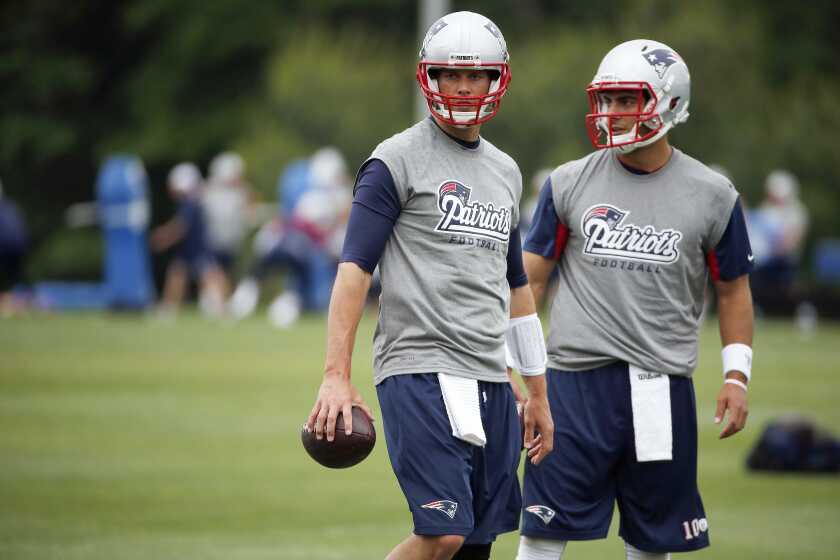Autopsy reveals Washington State QB Tyler Hilinski had CTE when he committed suicide, his parents say

The parents of Tyler Hilinski said that an autopsy revealed that the Washington State quarterback had chronic traumatic encephalopathy at the time of his suicide in January.
The type of extensive brain damage commonly known as CTE has been found in more than 100 former professional football players and can only be determined through an autopsy. Hilinski is only the second active college football player known to have had CTE at the time of his death.
“It was a shock, to get those results and to find out that he had it,” his mother, Kym Hilinski, said Tuesday on NBC’s “Today” show. “And to realize that the sport that he loved may have contributed to that diagnosis.”
Tyler Hilinski played high school football at Upland and was expected to contend for the starting job at Washington State this fall. On Jan. 16, he was found dead in his apartment near campus from an apparent self-inflicted gunshot wound to the head. His death was later ruled a suicide.
The Whitman County medical examiner told the family that a toxicology report showed no trace of drugs or alcohol in Tyler Hilinski’s system. An autopsy performed by the Mayo Clinic determined that the promising young player had Stage 1 CTE.
His father, Mark Hilinski, said in the “Today” interview that he was told his 21-year-old son “had the brain of a 65-year-old, which is really hard to take, you know? He was the sweetest, most outgoing, giving kid. That was difficult to hear.”
“Did football kill Tyler?’’ Kym Hilinski said in a new Sports Illustrated documentary. “I don’t think so. Did he get CTE from football? Probably. Was that the only thing that attributed to his death? I don’t know.”
All three of the Hilinskis’ sons were standout quarterbacks. The oldest, Kelly, played at Weber State. The youngest, Ryan, has committed to play for South Carolina starting in 2019 — a decision his parents decided to let him make for himself.
“We did a lot of research,” Kym Hilinski said. “Can CTE be tested in the living? It can’t. Is there a genetic, hereditary link? They’re not sure. So we had to find out as much information as we can, talk to experts and let Ryan know.”
Ultimately Ryan decided to continue playing as a tribute to his brother.
“I’m going to do everything that Tyler wanted to do with football,” he told Sports Illustrated. “I’m going to do that for Tyler, to honor him.”
Twitter: @chewkiii
More to Read
Go beyond the scoreboard
Get the latest on L.A.'s teams in the daily Sports Report newsletter.
You may occasionally receive promotional content from the Los Angeles Times.











